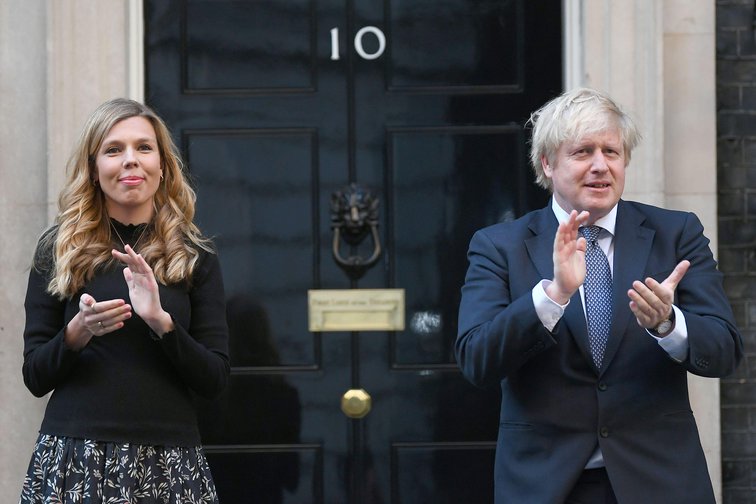Boris Johnson accused of attack on democracy over plan to ‘neuter’ watchdog
Exclusive: Proposed hike in power for Tory MPs and ban on UK commission prosecuting election fraud is ‘a real concern in a developed democracy’
 |
Prime minister Boris Johnson has been accused of launching an attack on democracy after the British government announced plans to limit the powers of the election watchdog.
The move would stop the Electoral Commission from taking politicians to court over secret donations and illegal campaigning, placing new curbs on the regulator’s independence.Several leading Conservatives have heavily criticised the watchdog in recent years, including after Vote Leave was found to have broken electoral law during the Brexit referendum. Johnson is currently under investigation by the Electoral Commission over the funding of the refurbishment of the Downing Street flat that he shares with his new wife, Carrie Symonds.
Yesterday, the Cabinet Office minister Chloe Smith laid out new plans that would give politicians increased powers over the body that is charged with regulating MPs’ activities.
“Such reforms do not seek to interfere or inappropriately influence the investigative, operational or enforcement decisions of the Electoral Commission,” Smith said in a government statement.
However, experts have called the proposals “a real concern in a developed democracy”. The SNP MP Owen Thompson said he had “major concerns” over the plans, describing them as an attempt to “neuter” the electoral watchdog.
“This is the sort of thing that if you saw this happening in another country we would be up in arms about the attack on democracy and the independence of the electoral regulator but they are doing it here blatantly,” said Thompson, who sits on the parliamentary body that oversees the Electoral Commission.
Backwards step
The government’s proposals would give the government increased control over the Electoral Commission, including more powers for the Speaker’s Committee. Of the nine MPs who sit on the committee, five are Conservatives, including Craig Mackinlay, who was tried and cleared of election expenses fraud in 2019.
“If the Speaker’s Committee is setting the plan for the Electoral Commission and the Electoral Commission is majority Tory, they are basically able to set the strategic plan for the body that oversees elections,” Thompson added.
Gavin Millar, QC, the country’s leading expert in electoral law, called the proposal a “backwards step” that would hand more power to the government.
“I don’t think this is healthy in a modern democracy,” he said. “We should be looking to expand the Electoral Commission’s powers [to pursue prosecutions], with greater resources and encouragement for them to investigate.”
“Recently the Electoral Commission has undertaken high-profile investigations into potential criminal offences… These have been the subject of complaints from politicians and parties affected, and it appears the commission is now going to face greater parliamentary scrutiny, and possibly control, in this area of its work.”
He added: “The minister’s criticisms are not fair. Parliament has given the Electoral Commission statutory powers to do such investigations, in a difficult and contentious area of law, but never resourced it properly. Or indeed, encouraged and supported it in this sort of work.”
Would a Parliament-controlled body be able to fine the three largest parties for breaching spending rules as the Electoral Commission did?
The government’s move comes after the Electoral Commission’s announcement last month of a formal investigation into how the refurbishment of Johnson’s flat was funded, saying there were “reasonable grounds” to suspect multiple offences may have been committed.
The prime minister’s former adviser, Dominic Cummings, claimed that Johnson developed “possibly illegal” plans to get Tory donors to cover the refurbishment costs.
But the new proposals would mean that the Electoral Commission could not bring about prosecutions itself, instead relying on “the existing independent and impartial police forces, prosecution services and courts”.
In an unusually strongly worded statement, the Electoral Commission last night warned that its independence should be “preserved” so that it can “continue to deliver all duties within its remit, including effective enforcement”.
Alexandra Runswick, senior advocacy manager at Transparency International UK, told openDemocracy that the proposals would “undermine both the independence and effectiveness of the commission”.
She asked: “Would a body that is tightly controlled by Parliament be able to fine the three largest parties for breaching spending rules as the Electoral Commission did after the 2015 general election?
“Politicians may not find this comfortable, but it will strengthen our democracy,” she added.
Violating electoral integrity
Conservatives have previously called for the Electoral Commission to be disbanded. Tory party co-chair, Amanda Milling, has said that the body should become “more targeted” – or be abolished.
The watchdog has ruled over several high-profile controversies in recent years, bringing large fines against politicians and campaign groups.
In 2017, it accused the Conservative Party of “significant failures” in the way it recorded its election campaign spending and issued a record £70,000 fine.
The party’s actions created a “realistic prospect of its candidates gaining a financial advantage over opponents,” it said, adding that the party had displayed “unreasonable uncooperative conduct” during the investigation.
The Electoral Commission also investigated allegations that pro-Brexit campaign groups had collaborated during the 2016 referendum, allowing Vote Leave to exceed spending limits. The case ended with Vote Leave paying a £61,000 fine, but denying any wrongdoing, while the pro-Brexit campaigner Darren Grimes, won an appeal against his £20,000 fine.
In the last four years, the commission has completed more than 500 investigations into party donations, campaign finance and election law.
Alistair Clark, a senior lecturer in politics at Newcastle University and an expert in electoral law, said the government’s proposals “would violate aspects of electoral integrity” and “impinge on “the independence of the Electoral Commission. That is a real concern in a developed democracy.”
The Committee on Standards in Public Life is due to launch its report into the regulation of election finance next month.



No comments:
Post a Comment
Note: only a member of this blog may post a comment.